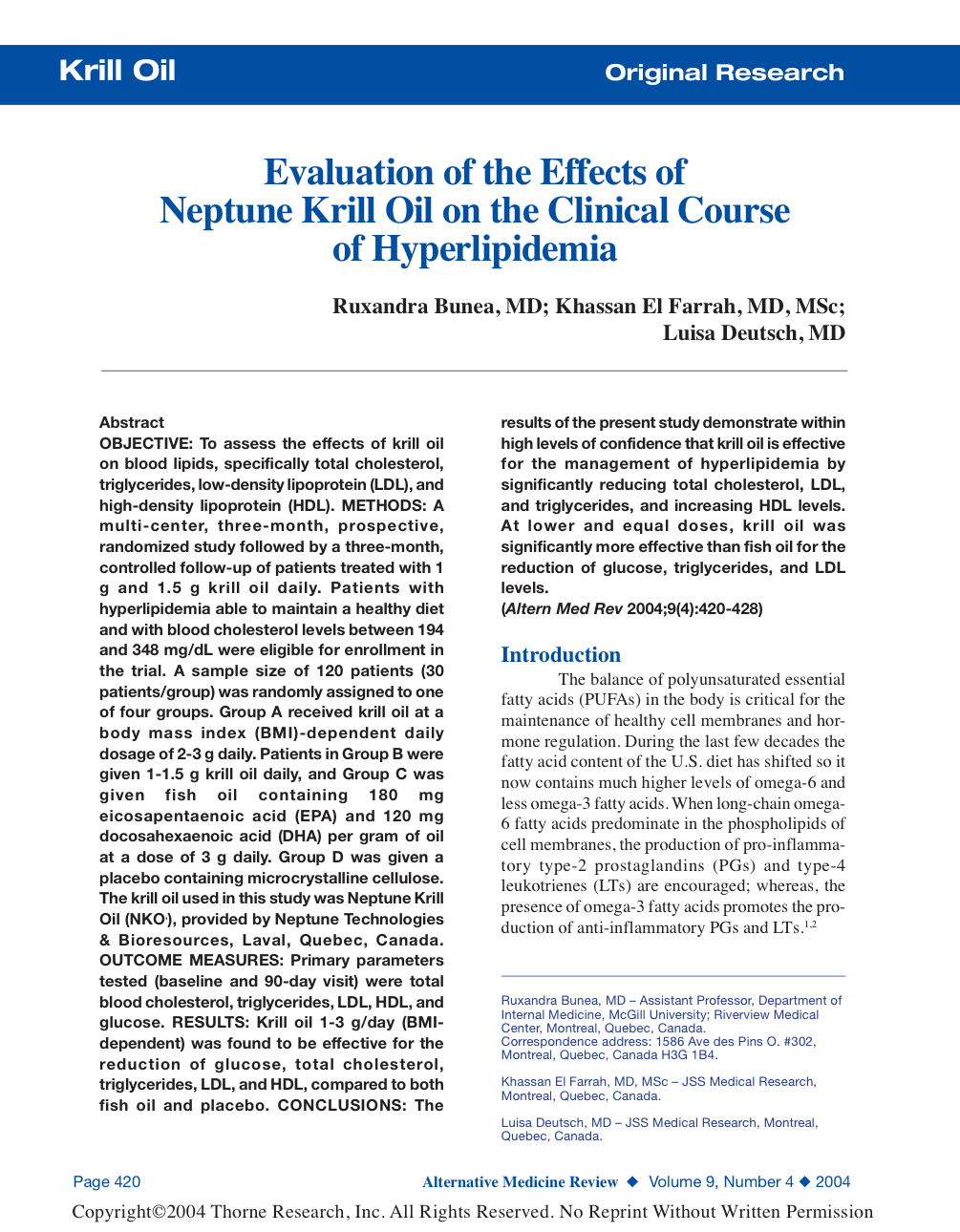Abstract
OBJECTIVE: To assess the effects of krill oil on blood lipids, specifically total cholesterol, triglycerides, low-density lipoprotein (LDL), and high-density lipoprotein (HDL). METHODS: A multi-center, three-month, prospective, randomized study followed by a three-month, controlled follow-up of patients treated with 1 g and 1.5 g krill oil daily. Patients with hyperlipidemia able to maintain a healthy diet and with blood cholesterol levels between 194 and 348 mg/dL were eligible for enrollment in the trial. A sample size of 120 patients (30 patients/group) was randomly assigned to one of four groups. Group A received krill oil at a body mass index (BMI)-dependent daily dosage of 2-3 g daily. Patients in Group B were given 1-1.5 g krill oil daily, and Group C was given fish oil containing 180 mg eicosapentaenoic acid (EPA) and 120 mg docosahexaenoic acid (DHA) per gram of oil at a dose of 3 g daily. Group D was given a placebo containing microcrystalline cellulose. The krill oil used in this study was Neptune Krill Oil (NKO‚), provided by Neptune Technologies & Bioresources, Laval, Quebec, Canada. OUTCOME MEASURES: Primary parameters tested (baseline and 90-day visit) were total blood cholesterol, triglycerides, LDL, HDL, and glucose. RESULTS: Krill oil 1-3 g/day (BMI- dependent) was found to be effective for the reduction of glucose, total cholesterol, triglycerides, LDL, and HDL, compared to both fish oil and placebo. CONCLUSIONS: The results of the present study demonstrate within high levels of confidence that krill oil is effective for the management of hyperlipidemia by significantly reducing total cholesterol, LDL, and triglycerides, and increasing HDL levels. At lower and equal doses, krill oil was significantly more effective than fish oil for the reduction of glucose, triglycerides, and LDL levels. (Altern Med Rev 2004;9(4):420-428)

